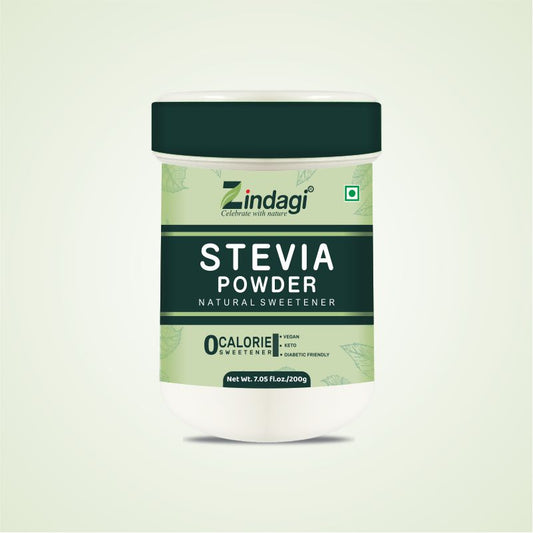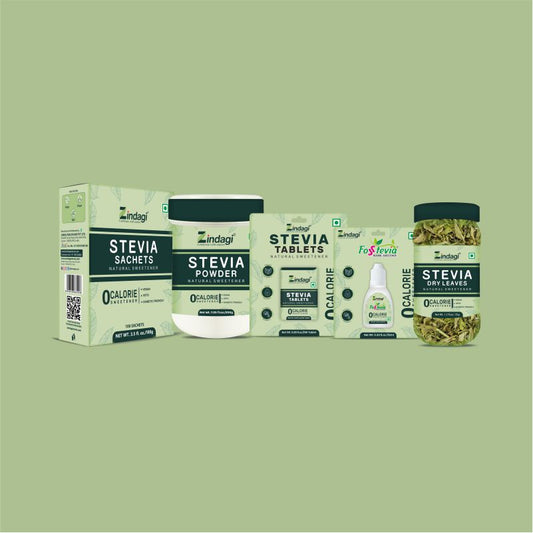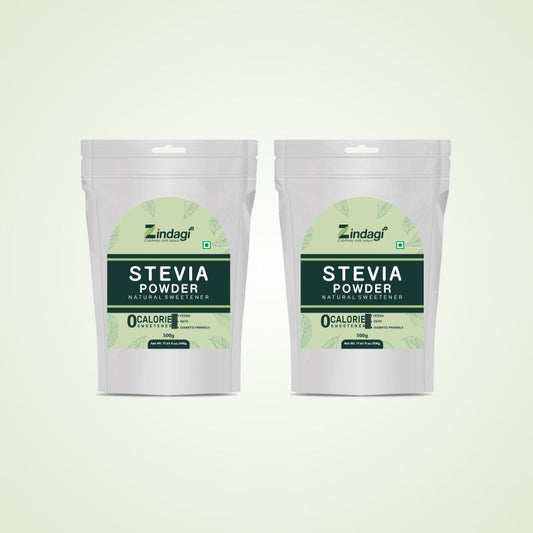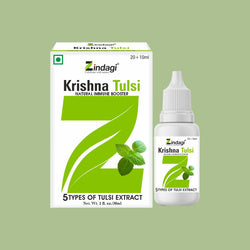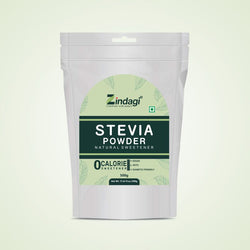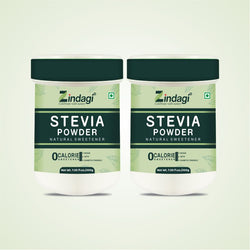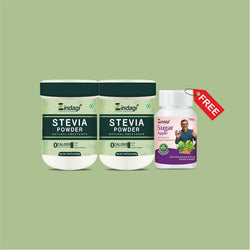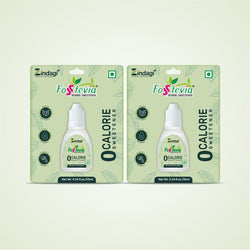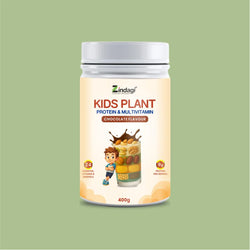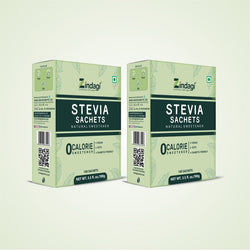If you've ever tried to quit sugar, you know that it is not easy — especially if your sweet tooth has other plans! However, for those living with diabetes, limiting sugar is not about willpower; it is about balance, health, and finding healthier alternatives. On the upside, there are several ways you can still enjoy sweetness without sending your blood sugar on the rollercoaster ride.
In this friendly guide, we will discuss the reasons why diabetics must limit sugar, why sugar substitutes can be a life changer, and which sweeteners belong in your kitchen cupboard — and which should stay off.
Why Diabetics Need to Limit Sugar
Let's not sugar coat it: sugar and diabetes do not coexist well. When you consume foods that are high in sugar, you raise your blood glucose levels. For an individual with diabetes, this can put a significant strain on the body to control blood sugar levels appropriately.
Here is the good news - reducing sugar does not necessarily mean reducing happiness. Once you've begun to dive into which is the best sugar substitute for diabetics, you'll see that there are so many options that are just as delicious to help satisfy your sweet tooth while still feeling good about your choices and avoiding sugar spikes.

Reducing sugar can:
- Help stabilize energy levels throughout the day
- Support weight management
- Improve insulin sensitivity
- Protect your heart health
So, instead of thinking of it as a restriction, think of it as a chance to upgrade your sweetness.
Why Sugar Substitutes Are Important
Sugar substitutes play a pretty sweet role in a diabetic-friendly lifestyle. They provide that familiar taste of sweetness, but without the glucose overload.
Think of them as sugar’s kinder, gentler cousins. They add flavor to your coffee, tea, desserts, and smoothies but have little to no impact on your blood sugar levels.
There are many kinds of sugar substitutes out there, natural, artificial, and those in-between. Some are made from plants, while others are created in labs. But not all sweeteners are created equal. The trick is knowing which ones support your health goals and which ones quietly sabotage them.
The Sweetener Spectrum: What’s Safe (and What’s Not)
When it comes to finding the best sugar substitute for diabetics, it’s helpful to picture a simple chart: on one side, you’ve got the safe and smart choices, and on the other, the sweet but sneaky ones. Let’s break them down.
Safe & Smart Sweeteners
These are natural, zero/low-calorie sweeteners that don’t raise your blood sugar levels. They’re great for anyone looking for a natural sugar substitute that still tastes great.
· Stevia
Stevia is one of the most popular choices for diabetics, and for good reason. It’s extracted from the leaves of the Stevia rebaudiana plant and has zero calories and zero carbs.
It’s super sweet (up to 300 times sweeter than sugar), blended with other bulking agent to mask its over sweetness, you only need a tiny bit. Plus, studies show that stevia doesn’t affect blood sugar or insulin levels, making it one of the healthiest sugar substitutes out there.
Stevia is perfect for coffee, tea, smoothies, and all your sweetener needs. Some users may notice a slight aftertaste, but brands are improving the flavor dramatically
· Monk Fruit
Monk fruit (also called luo han guo) is another healthy sugar substitute that’s completely natural. It comes from a small green melon native to China and Thailand. The sweet compounds in monk fruit, called mogrosides, don’t raise blood sugar.
Monk fruit sweeteners are calorie-free and much sweeter than sugar, yet they have a clean, pleasant taste.
Monk fruit does not spike blood sugar and has no calories or carbs making it ideal for diabetics. It is often blended with Erythritol for better texture and consumption.
· Erythritol
Erythritol is a type of sugar alcohol that is naturally present in certain fruits and fermented foods. It has approximately 70% of the sweetness of sugar, and has nearly zero calories or glycemic impact on blood sugar levels.
Many brands use erythritol in their blends with stevia or monk fruit to replicate the taste and texture of real sugar. Erythritol is an excellent choice for baking, as it retains the best approximation of real sugar.
Erythritol tastes very similar to sugar and does not raise blood sugar or insulin. A little fun fact, it is also gentle on teeth.
Sweeteners to Approach with Caution
Now let’s talk about the ones that sound natural and healthy but can still cause blood sugar spikes. These sweeteners often show up in “clean eating” recipes or health blogs, but for diabetics, they’re not as friendly as they appear.
· Honey
Honey may be natural, but it’s still sugar. It has a similar glycemic effect to table sugar and can raise blood sugar quickly.
While honey does contain antioxidants and trace minerals, it’s not a healthy sugar substitute for diabetics. If you use it, do so sparingly, just a drizzle.
· Dates and Date Syrups
Dates are nutritionally dense and rich in fiber, but can contain more natural sugar than other foods. When they have been turned into a syrup, most of that fiber is lost which can result in a rapid rise in blood sugar.
If you like dates, think of them as a special addition to your diet, not your everyday sweetener.
· Jaggery
Jaggery, which a lot of people believe is healthier in the spirit of natural foods, is really just unrefined sugar. It may have a few minerals left in it, but it has nearly identical effect on blood sugar levels as refined sugar does.
So, while it may be "less processed, " it is still not a good choice in place of refined sugar for someone with diabetes.
· Maple Syrup
While maple syrup may contain some antioxidants and features a strong flavor profile, it is still essentially just sucrose, which means it raises blood sugar levels.
Consider using it as an occasional topping for special occasions and not in daily sugar substitutions.
Finding Your Perfect Sweet Balance

Choosing a healthy sugar substitute isn’t just about swapping one sweetener for another. It’s about rethinking how you approach sweetness overall.
Here are a few quick tips to make the most of your sugar alternatives:
· Start by gradually reducing your overall sweetness preference - your taste buds will adjust!
· Try using different sweeteners (like stevia + erythritol) for a more sugar-like experience.
· Read labels carefully: some “sugar-free” products sneak in added sugars.
· Keep experimenting! Everyone’s taste buds are unique.
Final Thoughts
Selecting the right sugar substitute for diabetes can feel confusing and limiting. With stevia, monk fruit, and erythritol as options, you can still enjoy the flavors in a more balanced and moderate way.
Keep in mind, the goal is not to remove sweetness from your diet, but to embrace it wisely. One teaspoon at a time
Frequently Asked Questions (FAQs)
1. What is the best sugar substitute for diabetics?
Stevia, monk fruit, and erythritol are among the best choices because they don’t raise blood sugar and are natural or plant-based.
2. Are artificial sweeteners like aspartame safe for diabetics?
They’re generally considered safe in moderation, but many prefer natural options like stevia or monk fruit for a cleaner taste and fewer side effects.
3. Can diabetics use honey instead of sugar?
Honey still affects blood sugar levels and should be used sparingly, if at all.
4. Is brown sugar better than white sugar for diabetics?
No — both have a similar effect on blood glucose levels.
5. What’s the healthiest sugar substitute overall?
For most people, stevia and monk fruit are top contenders — natural, calorie-free, and blood sugar-friendly.
6. Can I bake with sugar substitutes?
Absolutely! Erythritol and blends of stevia or monk fruit are excellent for baking and give great texture and sweetness.


